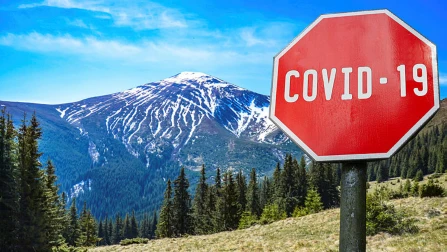
Overview
Landscape Ecology, an open access publication, is the flagship journal of a well-established and rapidly developing interdisciplinary science that focuses explicitly on the ecological understanding of spatial heterogeneity. Landscape Ecology draws together expertise from both biophysical and socioeconomic sciences to explore basic and applied research questions concerning the ecology, conservation, management, design/planning, and sustainability of landscapes as coupled human-environment systems. Landscape ecology studies are characterized by spatially explicit methods in which spatial attributes and arrangements of landscape elements are directly analyzed and related to ecological processes.
All manuscripts must show a keen awareness of the current literature and an immediate relevance to at least one of the following key topics: (1) Flows and redistributions of organisms, materials, and energy in landscape mosaics; (2) Landscape connectivity and fragmentation; (3) Ecosystem services in dynamic landscapes (especially, tradeoffs and synergies); (4) Landscape history and legacy effects; (5) Landscape and climate change interactions (particularly, mitigation and adaptation); (6) Landscape sustainability and resilience (e.g., relationships between ecosystem services and human well-being in changing landscapes); (7) Mechanisms and ecological impacts of land use change; (8) Scaling relations and hierarchical linkages of patterns and processes across landscapes; (9) Innovative methods in landscape analysis and modeling; and (10) Accuracy assessment and uncertainty analysis of landscape studies.
A valuable resource for both researchers and practitioners in ecology, conservation, ecosystem management, and landscape planning and design, Landscape Ecology is currently one of the leading journals across these fields.
- Editor-in-Chief
-
- Jianguo Wu
- Impact factor
- 5.2 (2022)
- 5 year impact factor
- 5.3 (2022)
- Submission to first decision (median)
- 13 days
- Downloads
- 1,092,546 (2023)
Societies and partnerships
Latest articles
Journal updates
-
Landscape Ecology is now a full open access journal!
ANNOUNCEMENT | Journal Milestone
Landscape Ecology is a full open access (OA) journal as of January 2024! It now publishes only OA content that is freely available to readers worldwide, enabling the widest possible dissemination and reuse. -
Improving landscape sustainability across urban and rural regions in a changing world
CALL FOR PAPERS | Deadline: March 31, 2024
UN SDG 2 (Zero Hunger); SDG 3 (Good Health & Well-being); SDG 11 (Sustainable Cities & Communities); SDG 12 (Responsible Consumption & Production); SDG 13 (Climate Action); SDG 15 (Life on Land)
A central issue in the science and practice of landscape sustainability hinges on the landscape pattern-ecosystem services-human wellbeing nexus—which is the theme of this collection. -
Pandemics and landscape ecology in a post-COVID world
CALL FOR PAPERS | Deadline: May 1, 2024
UN SDG 3 (Good Health & Well-Being); SDG 11 (Sustainable Cities and Communities): Target 11.5, Target 11.7We are interested in papers that examine the spatial dynamics of pandemics, including (but not limited to COVID-19) spreading, forecasting, management and mitigation, and that also look at the ecological impacts of the “anthropause” due to COVID-19, as well as challenges to research during the first years of the pandemic and continuing on as we learn to “live with COVID”.
-
Advances and Applications of Unoccupied Aerial Systems (UAS) Research in Landscape Ecology
CALL FOR PAPERS | Deadline: May 31, 2024
UN SDG 13 (Climate Action); SDG 15 (Life on Land)
This collection will highlight new research that integrates Unoccupied Aerial Systems (UAS) data into landscape-scale analysis.
Journal information
- Electronic ISSN
- 1572-9761
- Print ISSN
- 0921-2973
- Abstracted and indexed in
-
- AGRICOLA
- ANVUR
- Astrophysics Data System (ADS)
- BFI List
- BIOSIS
- Baidu
- Biological Abstracts
- CAB Abstracts
- CLOCKSS
- CNKI
- CNPIEC
- Current Contents/Agriculture, Biology & Environmental Sciences
- Dimensions
- EBSCO
- EMBiology
- Engineering Village – GEOBASE
- Google Scholar
- Japanese Science and Technology Agency (JST)
- Meta
- Naver
- Norwegian Register for Scientific Journals and Series
- OCLC WorldCat Discovery Service
- Portico
- ProQuest
- SCImago
- SCOPUS
- Science Citation Index Expanded (SCIE)
- TD Net Discovery Service
- UGC-CARE List (India)
- Wanfang
- Zoological Record
- Copyright information










